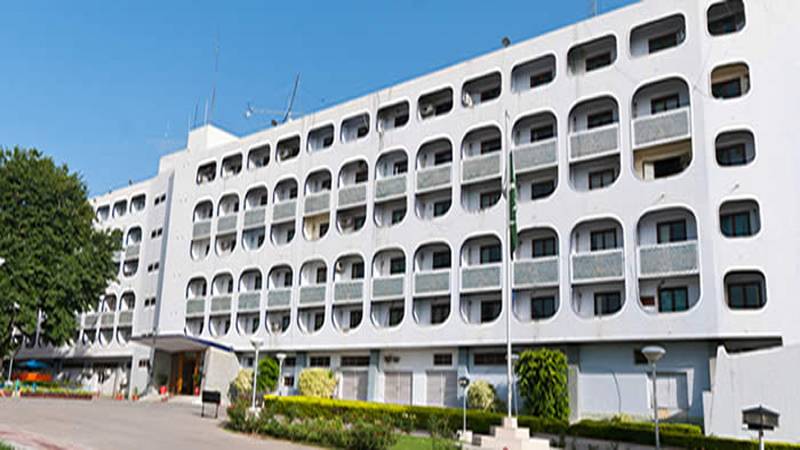ISLAMABAD - Pakistan has told the United States that it had done enough against terror and being ‘on notice’ was unfair, diplomatic sources said.
Senior officials at the foreign ministry told The Nation that Pakistan had contacted the US and protested after Bureau of South and Central Asian Affairs Principal Deputy Assistant Secretary Alice Wells’ statement that Pakistan was still ‘on notice’.
One official said: “We have told the US that Pakistan had done enough against terrorism and it deserved medals rather than notices.” He added: “Washington has appreciated Pakistan’s role against terrorism but repeated the ‘do more’ mantra.”
Earlier, Wells said Pakistan was still on notice on the question of taking decisive action against terror outfits. She asked Pakistan to work towards elimination of all terrorist sanctuaries from its territory.
In an official testimony before the House Foreign Affairs Committee, Ambassador Wells said the US expects “unequivocal cooperation” in ending the sanctuaries of Taliban in Pakistan.
“Pakistan is on notice that we expect its unequivocal cooperation ending sanctuaries that the Taliban have enjoyed since the remnants of their toppled regime fled into Pakistan in 2001,” she said but added that Pakistan can play an important role in the Afghan peace process.
Well’s statement came after Pak-US relation showed signs of improvement. This month, Pakistan and the US agreed to jointly achieve common targets of peace and stability in Afghanistan and the region.
On June 7, US Vice president Mike Pence telephoned Caretaker Prime Minister Nasirul Mulk to discuss the bilateral ties and the regional situation. Both the leaders agreed to further strengthen bilateral relations between the two countries. They also agreed to achieve joint targets of peace and stability in Afghanistan, an official statement said.
On the same day, US Secretary of State Mike Pompeo telephoned Chief of Army Staff Qamar Javed Bajwa and sought Pakistan’s cooperation in political reconciliation in Afghanistan.
Although there was no official word from the military about the telephonic interaction, yet officials said that Pompeo and Bajwa discussed the need for political reconciliation in Afghanistan.
The US has stepped up efforts seeking political reconciliation in Afghanistan after Afghan President Ashraf Ghani announced a ceasefire with the Taliban ahead of Eidul Fitr celebrated on June 16.
US State Department said Pompeo, who was the head of Central Intelligence Agency before his appointment as secretary of state, discussed “advancing US-Pakistani relations and the need for political reconciliation in Afghanistan.”
Only last month, the two countries had imposed tit-for-tat travel restrictions on each other’s diplomats suggesting a new low in their troubled ties.
Pakistan hosted the first direct peace talks between Kabul and the Taliban in 2015 but they ended when Kabul announced the death of Taliban founder Mullah Mohammed Omar.
Another official at the foreign ministry said the US had put Pakistan ‘on notice’ to please India. “We have asked them (the US) not to put us (Pakistan) on notice just because India wants them to do this. We have a history of successes against terrorism,” he added. The official said India was misguiding the US. “For the last few months we have been sharing our successes against terrorism with the US. They should not ignore our victories. Putting (Pakistan) on notice is unfair. They must put us (Pakistan) off the notice and acknowledge our efforts. This is what we have told them (Washington),” he contended.
Pak-US ties have been frosty for several months. In January, the US suspended security assistance to Pakistan targeting the Coalition Support Fund. Pakistan responded sharply saying it was not dependent on US aid for the war on terror.
The foreign ministry said Pakistan had fought the war against terrorism largely from its own resources “which has cost over $120 billion in 15 years.” Pakistan said the money it had received from the US was mainly reimbursements for supporting US-led coalition forces after they invaded Afghanistan in 2001.
SHAFQAT ALI






